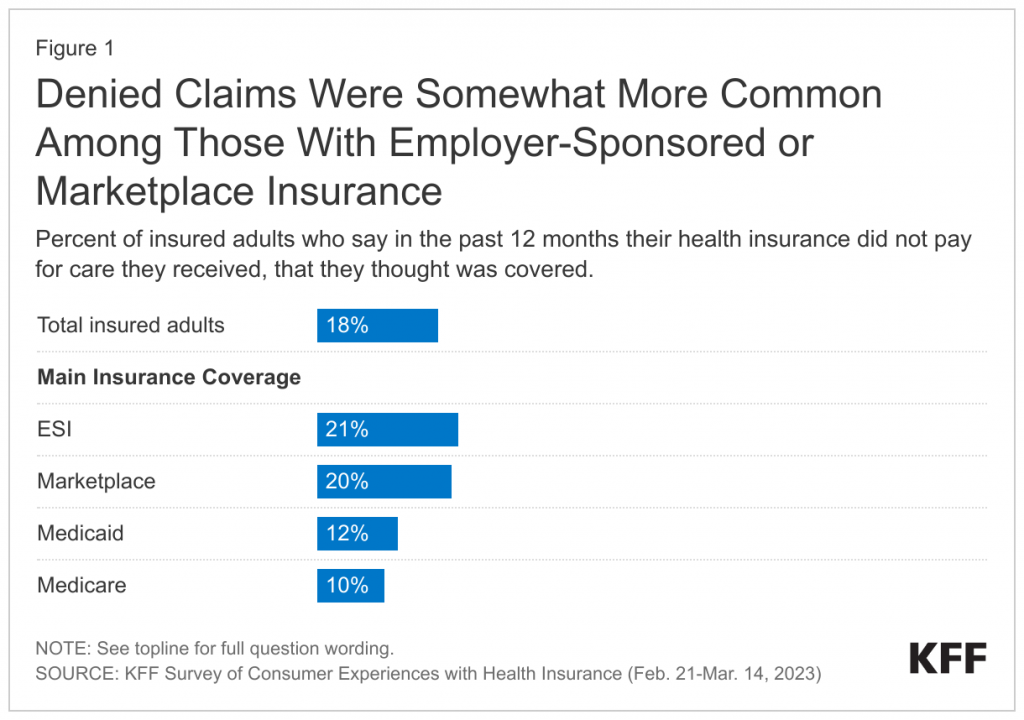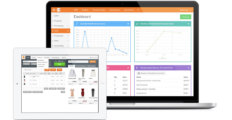Although they provide compassionate and attentive care, it is important to keep in mind that hospitals and healthcare clinics are, at their core, businesses. As such, to deliver high-quality service and improve people’s lives, they must achieve long-term stability and profitability.
Striking this balance, however, is challenging without effective revenue cycle management (RCM). Sophisticated RCM solutions streamline billing, ensure regulatory compliance, and reduce administrative burdens, allowing healthcare staff to focus more on patient care.
This not only improves financial health but also elevates patient satisfaction. In this comprehensive guide, we’ll explore the role of RCM in the fast-changing healthcare landscape.

Effective Revenue Cycle Management: An Overview
Revenue Cycle Management (RCM) encompasses all administrative and clinical functions that are involved with driving revenue, managing cash flow, and collecting profit – from patient care and other revenue streams.
An effective RCM solution optimizes the financial performance of healthcare businesses – like hospitals and specialized clinics – by ensuring that the process from patient appointment to final payment flows smoothly.
This includes patient scheduling, insurance verification, coding, billing, and denial management. Advanced RCM solutions also integrate seamlessly with existing systems, providing real-time data and analytics to make informed financial decisions.
When these processes are streamlined, healthcare organizations can focus more on delivering quality care rather than dealing with financial and compliance headaches.
The Role of Effective Revenue Cycle Management in Healthcare
Effective RCM plays a pivotal role in healthcare – far beyond just handling finances. It impacts patient experience, regulatory compliance, and overall operational efficiency.
By integrating a complete RCM solution, healthcare providers can streamline their billing processes, reduce errors, and ensure accurate coding. This results in fewer claim denials and faster payment cycles, which directly improve cash flow. However, whether it is directly or indirectly, RCM touches on all aspects of healthcare businesses – we’ll explore how below.
10 Key Benefits of Effective Revenue Cycle Management in Healthcare
From streamlining billing processes to enhancing patient satisfaction, an efficient RCM system offers numerous advantages. Below, we delve into ten key benefits of investing in a complete RCM solution for your healthcare practice.
Streamlining Billing Processes
Effective RCM streamlines billing processes, reduces errors, and speeds up payment cycles. This is vital especially today that, as recent surveys show, 80% of consumers feel their healthcare insurance plans lack clarity in addressing billing errors.
With a complete RCM solution, billing becomes transparent and straightforward. Patients experience better service, clearer options, and quicker resolutions. Automation tools also reduce manual entry, which can help minimize mistakes and ensure accurate bills.
As a consequence, these benefits enhance patient satisfaction while also securing consistent cash flows.
Enhancing Regulatory Compliance
Navigating ever-changing healthcare regulations is daunting – and, as a result, many clinics and hospitals have a high risk of legal and ethical problems when operating. That’s where effective RCM solutions can help improve the security and reputation of your business.
RCM can help you stay on top of compliance by continually updating to meet the latest standards, thus avoiding legal issues and financial penalties. A complete RCM solution also offers features like automated tracking and safe documentation storage.
This approach mitigates risks associated with non-compliance, which can lead to fines and financial pitfalls. What’s more, in the context of your clinic’s long-term strategy, these systems can also help you maintain the trust of both patients and stakeholders and, in turn, protect your finances and reputation from scandals.
Reducing Administrative Burdens
Administrative tasks, particularly billing and payment processing, are among the most significant burdens for healthcare personnel in administrative roles. An effective RCM solution automates these tasks, freeing up valuable time and energy for administrative staff.
This impact may seem small, but it means fewer hours spent on repetitive paperwork and more time focused on strategic initiatives that improve patient care. Plus, thanks to automation, it is possible for clinics and hospitals to reduce the risk of human error, ensuring accuracy and efficiency (in both patient care and financial matters).
Improving Cash Flow and Financial Stability
Although the healthcare industry is thriving, the competition has never been as fierce. This landscape makes it necessary for businesses to safeguard their profitability to remain afloat this competitive market. RCM software can help you do just so by ensuring accurate billing, reducing denials, and accelerating payments.
Additionally, budgeting features, as part of a complete RCM solution, provides real-time financial insights and forecasting. This allows healthcare administrators to manage expenses better and plan for future investments. As a result, healthcare organizations are more likely to reach financial stability, allowing them to invest more in patient care, staff development, and advanced medical technologies.
Elevating Patient Care and Satisfaction
As we have seen above, all the benefits of RCM lead back to patient care.
Here are some of the implications of improved profitability and operational efficiency of healthcare businesses on patient care:
- RCM simplifies billing processes, enhancing patient understanding and satisfaction.
- Automation can reduce billing errors, ensuring a smoother patient experience.
- RCM solutions can help manage scheduling to minimize patient wait times.
- Ad hoc software solutions help verify insurance coverage promptly, avoiding unexpected costs for patients.
- RCM provides transparent and updated billing information, fostering trust.
- Easy-to-use portals help improve communication between patients and providers regarding financial responsibilities.
- Automation features free up healthcare staff, which can better focus on patient care rather than administrative tasks.
Minimizing Denied Claims
As a professional in the healthcare industry, you understand the importance of minimizing denied claims to safeguard consistent revenue streams.
Effective RCM solutions can help by identifying and rectifying issues that commonly lead to claim denials, such as incorrect coding or missing information. Thanks to automated tools and analytics, they can pinpoint denial causes, enabling quick resolution and resubmission.
Additionally, according to the KFF Survey, 18% of insured adults experience denied claims, which significantly impairs their ability to seek adequate care. In turn, by addressing this problem, a complete RCM system can play a vital role in improving your customer’s experience.
Ensuring Accurate Coding
Effective RCM solutions incorporate advanced coding tools that align with the latest coding standards, reducing errors and ensuring compliance. Automated systems also provide real-time updates, helping healthcare providers avoid costly mistakes.
What’s more, when it comes to accurate coding, a lot is still in the hands of human professionals. That’s where, thanks to integrated and comprehensive training modules, RCM solutions keep staff updated on coding practices. This enhances billing accuracy and speeds up the reimbursement process.
Enhancing Data Security
Data security is non-negotiable in healthcare – not just to safeguard the reputation of your brand, but also to ensure patient security and efficient care. Effective RCM solutions can help healthcare businesses protect themselves against data leaks and cybersecurity attacks by employing advanced encryption and multi-layered security protocols to protect sensitive patient information.
Plus, RCM ensures compliance with regulations like HIPAA, which helps maintain data integrity and confidentiality. Lastly, regular security audits, secure data storage and transmission, and real-time monitoring detect vulnerabilities before they become issues, providing an extra layer of protection.
Ultimately, by safeguarding patient data, healthcare providers not only comply with legal requirements but also build trust with patients and stakeholders – and RCM software plays an integral role in this.
Increasing Operational Efficiency
Over the past years, due to the rising in chronic diseases, a shift towards holistic treatments, and the aging of the population, healthcare facilities have been under unprecedented pressure. Given that these changes are following an upward trend, it has never been more important for hospitals and clinics to find ways to optimize efficiency.
Here, RCM solutions can help by automating routine tasks like billing, coding, and claims processing, which allows healthcare providers to manage higher patient volumes without adding extra administrative staff or compromising the quality of service.
Facilitating Better Decision-Making
Effective RCM leverages advanced technologies like AI and machine learning, which are reshaping the healthcare industry by providing real-time data, actionable insights, and trend analysis that help optimize staffing, resource management, and financial planning.
Lastly, a complete RCM solution empowers healthcare organizations to make informed decisions, minimizing risks and maximizing profitability – ultimately enhancing both financial performance and patient care.
Conclusion
In this guide, we’ve seen the benefits of RCM for the healthcare industry, including:
- Streamlined billing processes, coding, data security, and compliance
- Reduced administrative burdens
- Improved cash flow and budgeting
- Increased patient care and satisfaction.
- Minimized denied claims.
- Optimized operational efficiency
- Data-driven decision-making
Ultimately, RCM solutions can offer a world of advantages – from boosting a healthcare business’s triple bottom line to improving patient satisfaction.
























Leave a comment!